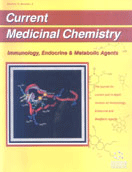Abstract
Despite the multifactorial etiology of obesity, the attention of the scientific community is now focused on the collection of microorganisms that inhabit the human gut (the gut microbiota) and on their effects upon energy harvest and metabolic signaling. The gut microbiota is involved in the pathophysiology of obesity and several mechanisms are behind this association, e.g. increased capacity to extract energy from undigested components of the diet, regulation of fat storage and fatty acid oxidation, bile acids transformation, endocannabinoid system modulation and metabolic endotoxemia. In this chapter, different therapeutic approaches (prebiotics, probiotics and fecal microbiota transplants) designed to modulate the gut microbiota composition towards better results and success rates in obesity management are reviewed and summarized. In conclusion, the gut microbiota might represent a useful marker for determining susceptibility to metabolic disease, as obesity, and be useful in disease diagnosis and monitoring of disease progression.
Keywords: Dysbiosis, Fecal microbiota transplant, Gut, Metabolic syndrome, Microbiome, Microbiota, Obesity, Prebiotics, Probiotics, Synbiotics.





















